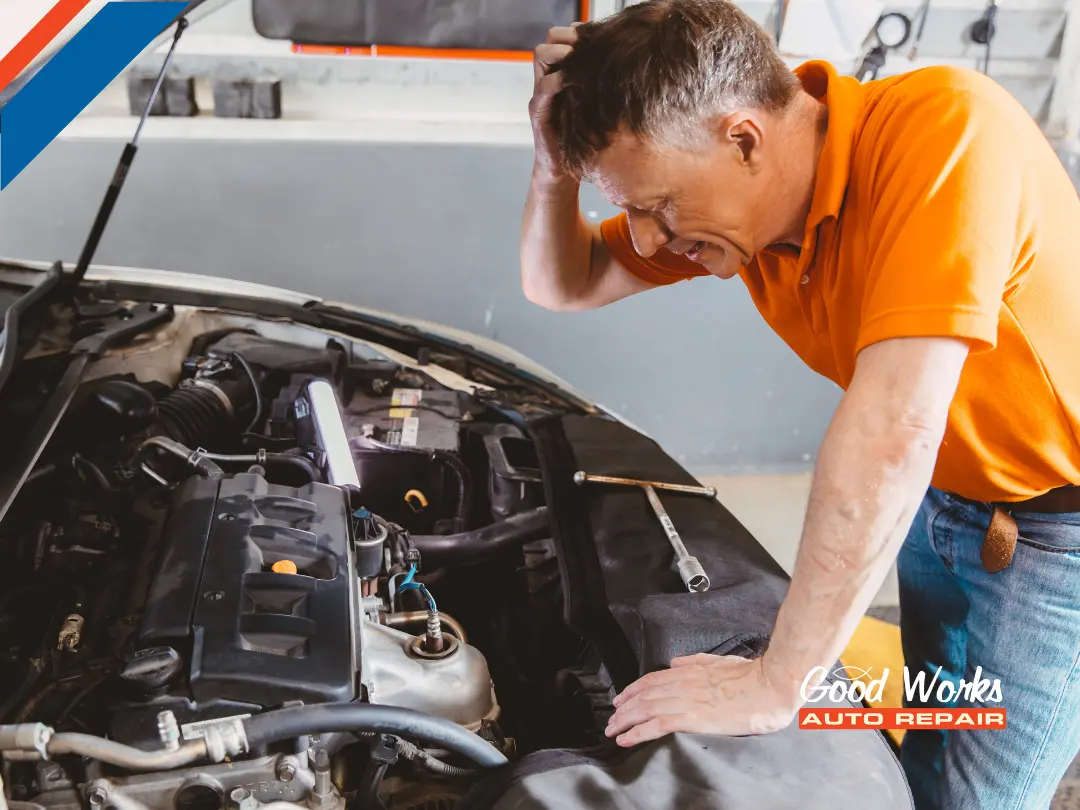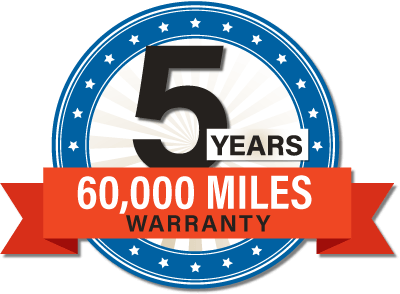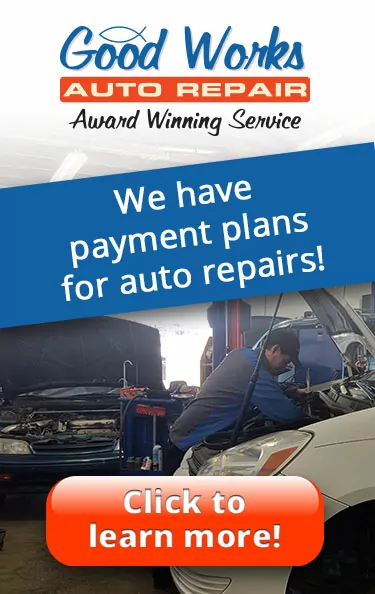Owning a car brings convenience and freedom, but it also comes with the responsibility of maintenance. Regular upkeep can help prevent common car problems and save you from unexpected repairs and expenses.
Here, we’ll review some of the most common car problems and provide tips on how to prevent them. Then, we’ll explain how your trusted mechanic and favorite local auto repair shop can be your best friends when it comes to car care.
10 Common Car Problems and How to Keep Them From Happening to YOUR Vehicle
1. Engine Overheating
An overheated engine can leave you stranded by the side of the road. This isn’t a pleasant experience anywhere, but it’s especially uncomfortable here in the hot climate of Arizona.
Common causes of engine overheating include:
- Air Flow Issues
An engine needs a steady flow of clean air. A clogged air filter can choke your engine, leading to decreased efficiency and sputtering. Replace or clean the air filter regularly to ensure proper airflow. - Fuel Supply Problems
Insufficient or contaminated fuel can impede performance. It’s crucial to maintain a full and clean gas tank. Additionally, ensuring your fuel injectors are free of dirt and debris can prevent sputtering. - Ignition System Faults
Your spark plugs ignite the fuel-air mixture in the engine. Worn-out or faulty spark plugs can cause misfires, resulting in a sputtering engine. Regularly inspect and replace your spark plugs to keep things running smoothly.
Proactive Maintenance and Prevention Tips:
- Regular Checkups: Routine maintenance is key. Schedule regular service appointments to catch potential issues before they become significant problems.
- Fuel Additives: Consider using quality fuel additives to keep your fuel system clean and efficient.
- Monitor Performance: Keep an eye on how your vehicle is performing. Any change, such as reduced acceleration or unusual sounds, may indicate an issue requiring attention.
2. Dead Car Battery
Common Causes: Although most vehicle batteries last between 3 and 5 years, they aren’t guaranteed to do so. This is especially true here in Arizona where temperature extremes can cause batteries to fail more quickly. Other common causes for dead batteries include battery age, leaving your vehicle’s lights on, or a failing alternator.
Prevention Tips:
- Test your battery regularly and replace it every 3-5 years
- Turn off all lights and electronics when the engine is off
- Have your alternator checked during regular maintenance visits
3. Flat Tires
Common Causes: The condition of your vehicle’s tires has a significant impact on your driving safety. Regular tire inspections are a good way to detect tire issues before they become bigger problems. This is especially important before you head out on a road trip. Common causes for flat tires include punctures, underinflation, or worn-out tires.
Prevention Tips:
- Regularly inspect your tires for wear and tear
- Maintain proper tire pressure by checking it monthly
- Rotate your tires every 5,000 – 7,000 miles to ensure even wear
- Avoid driving over sharp objects and potholes
4. Brake Issues
Common Causes: Your tires aren’t the only components important for driving safety – your brakes play a significant role, too. Common causes of brake problems include worn-out brake pads, low brake fluid, or damaged rotors.
Prevention Tips:
- Check brake pads and replace them if they are worn out
- Regularly check and top off brake fluid
- Listen for any unusual noises when braking and have them inspected immediately
- Schedule regular brake inspections as part of your maintenance routine
5. Transmission Problems
Common Causes: Transmission issues can cause unusual noises and difficulty with shifting gears. Common causes include low transmission fluid, worn-out gears, or a faulty clutch.
Prevention Tips:
- Regularly check and maintain transmission fluid levels
- Pay attention to any changes in gear shifting or unusual noises
- Have your transmission inspected and serviced according to your vehicle’s maintenance schedule
6. Alternator Failure
Common Causes: Alternator failure often manifests as dimming lights or a whining noise coming from the engine. Possible causes include worn-out bearings, voltage regulator issues, or loose connections.
Prevention Tips:
- Have your alternator tested during regular maintenance checks
- Watch for warning signs such as dimming lights or a whining noise from the engine
- Ensure all electrical connections are secure and free from corrosion
7. Exhaust System Issues
Common Causes: Exhaust system problems can lead to increased noise, decreased fuel efficiency, and harmful emissions. They are often caused by rust, leaks, or a damaged catalytic converter.
Prevention Tips:
- Regularly inspect the exhaust system for signs of rust or damage
- Pay attention to unusual exhaust noises or a decrease in fuel efficiency
- Ensure your vehicle’s undercarriage is washed regularly, especially in areas with road salt
8. Faulty Spark Plugs
Common Causes: Faulty spark plugs can cause misfires, rough idling, and reduced fuel efficiency, leading to poor engine performance. Common causes include normal wear and tear or carbon build-up.
Prevention Tips:
- Replace spark plugs according to your vehicle’s recommended schedule
- Have your engine tuned up regularly to ensure optimal performance
What Does a Tune-Up Involve, and How Can You Tell If Your Car Needs One?
A tune-up is essentially a preventive maintenance service for your car. It includes several key inspections and adjustments to ensure your vehicle runs efficiently. Here are the steps typically involved:
- Spark Plug Replacement: Over time, spark plugs wear out. Swapping them out is essential to maintain engine performance.
- Air Filter Check and Replacement: A clogged air filter can hamper engine efficiency. Ensuring it’s clean is vital.
- Fuel System Inspection: The fuel filter, injectors, and pump are examined to ensure optimal fuel delivery.
- Battery Test: Checking battery charge and connections can prevent unexpected failures.
- Ignition System Maintenance: The distributor and ignition coils are checked for issues.
- Fluid Checks: Vital fluids such as coolant, oil, and transmission fluid are topped off or replaced.
Recognizing when your car requires a tune-up is essential to avoid more significant issues down the line. Here are some indicators:
- Decreased Fuel Efficiency: If you’re visiting the fuel station more often, it might be time for a tune-up.
- Engine Misfires or Rough Idling: These could be symptoms that your engine components need attention.
- Difficulty Starting: Slow or challenging engine starts signal that maintenance may be necessary.
By staying on top of tune-ups, you can ensure your vehicle remains reliable and performs optimally.
9. Suspension Problems
Common Causes: Suspension issues can lead to a rough ride, poor handling, and uneven tire wear. Worn-out shocks and struts or damaged springs are typically the culprits.
Prevention Tips:
- Inspect your suspension system regularly for signs of wear
- Replace shocks and struts as needed to maintain a smooth ride
- Avoid rough roads and heavy loads that can strain the suspension system
10. Fuel System Issues
Common Causes: Fuel system problems can lead to poor engine performance and reduced fuel efficiency. They can be caused by a clogged fuel filter, fuel pump failure, or dirty fuel injectors.
Prevention Tips:
- Replace the fuel filter according to the manufacturer’s recommendations
- Use high-quality fuel to avoid contaminants
- Have your fuel system cleaned periodically to maintain efficiency
Easy Summer Car Maintenance Tips
Summer is the season for road trips and sunny drives, but is your car ready for the heat? Follow these simple maintenance tips to ensure your vehicle stays in top shape during the warmer months.
1. Check Your Air Conditioning System
Hot temperatures can make any drive unbearable without a functioning air conditioning system. Before summer kicks in, test your car’s A/C. If it’s not cooling effectively, you might need to recharge the refrigerant or inspect for leaks.
2. Monitor Tire Pressure and Tread
Tire pressure can fluctuate with rising temperatures, which affects fuel efficiency and safety. Make it a habit to check your tires regularly. Ensure they’re inflated according to your car manufacturer’s recommendations. Additionally, inspect the tread for wear and rotate the tires if necessary to promote even wear.
3. Inspect Fluid Levels
Fluids are the lifeblood of your vehicle, especially during hot weather. Check vital fluids like engine oil, coolant, brake fluid, and windshield washer fluid. Maintaining proper fluid levels will help prevent overheating and ensure smooth operation.
4. Clean and Replace Air Filters
Your car’s air filters work harder in the summer due to dust and pollen in the air. A clean air filter improves engine efficiency and cabin air quality. Inspect the air filters and replace them if they’re dirty or clogged.
5. Protect the Battery
Heat can be just as hard on batteries as cold. Ensure that the battery is securely mounted, and clean any corrosion from its terminals. Test its charge, and replace it if it shows signs of weakness; no one wants a breakdown in the scorching sun.
By following these straightforward maintenance steps, you can enjoy summer driving with confidence, knowing your car is ready for the open road.
Prevent Common Car Problems with Routine Maintenance at Our Tempe Auto Repair Shop
Did you know that regular maintenance and attention to detail can prevent most common car problems? Some of the prevention tips mentioned above are ones you can do yourself. Others require the knowledge, expertise, and tools of an experienced mechanic.
At Good Works Auto Repair, we are big believers in preventative maintenance. We’ve seen firsthand with our own vehicles how regular care and maintenance can make cars last longer, drive further, and be safer. Why not adopt healthy maintenance habits for your own vehicle so it not only runs better but keeps you and your passengers safe on the road?
Contact us today to schedule an appointment and let’s work together to prevent common car problems that could leave you in an uncomfortable or expensive situation!






